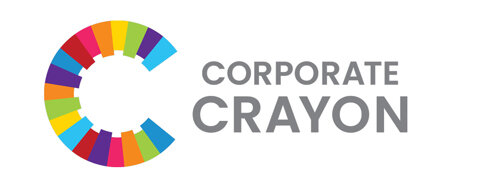Rest, Reflect, and Recharge
Written by Isabelle Frischknecht (Consultant) and Evelyn Jackson (Founder)
As the year comes to a close, we all have the opportunity to rest, reflect and recharge for the new year ahead.
In today’s fast-paced world, it is critical to take the time to pause and reflect on your wellbeing and the wellbeing of your people. We know wellbeing at work is no longer a “nice-to-have”. It is an essential foundation for individuals, teams, and organisations to achieve sustainable success.
By embracing moments to Rest, Reflect, and Recharge, we can all contribute to creating more resilient workplaces where people can thrive.
Rest: respecting downtime for recovery
Rest is critical for recovery, creativity, and resilience. Yet, many of us enter the holiday season feeling drained, stretched thin by deadlines, and unable to fully disconnect.
For organisations, this highlights the importance of creating a culture that respects rest. From enforcing no-contact policies during leave periods to actively encouraging employees to use their holidays, rest needs to be prioritised at all levels.
Leaders and managers may especially feel the increasing pressures of balancing demands of the business and their teams with their own personal wellbeing.
According to Microsoft’s Work Trend Index [2022], 53% of managers feel burnt out.
It’s important, not just for leaders and managers, but for all employees to prioritise self-care, set boundaries to maintain a healthy work-life balance and engage in activities during the holidays to keep themselves grounded.
Organisations who support their employees’ wellbeing and encourage them to rest, will not only see an improvement of their health and motivation to work but will cultivate a healthy and balanced approach to wellbeing.
Reflect: what have we learned about wellbeing?
Reflection is a powerful tool for continuous improvement. For individuals and organisations, this means taking a hard look at what worked - and what didn’t work - in 2024.
Reflection is the foundation for growth, and organisations can gain valuable insights by asking:
Did employees feel safe raising concerns about workload or stress?
Were there effective policies and systems to address wellbeing challenges?
How well did leaders model and prioritise wellbeing in their teams?
A key pillar of workplace wellbeing is psychosocial safety - fostering an environment where employees feel safe, respected, and genuinely supported. This involves cultivating a culture of trust, where open communication is encouraged and valued. To protect mental and emotional wellbeing, organisations must identify and address psychosocial risks, such as excessive workloads, unclear roles, or lack of support.
Studies indicate 15% to 45% of mental health problems experienced by employed people are attributable to conditions in their workplaces with the total cost of poor mental health practices in Australia being $200-220 billion per year [The Australia Institute, 2021].
By reflecting on the successes and challenges of 2024, organisations can identify ways to foster a proactive approach to wellbeing - particularly in psychosocial safety. By implementing proactive systems and practices, organisations can create a safe and empowering space that enables employees to thrive. When employees feel genuinely supported, they’re less likely to experience burnout or anxiety and are more likely to stay engaged and productive.
Recharge: moving from reactive to proactive
As we look ahead to 2025, the focus must shift from reacting to wellbeing crises to preventing them altogether.
Proactive strategies include:
Embedding wellbeing initiatives into the organisational culture
Training leaders to recognise and address psychosocial risks
Conducting regular wellbeing check-ins to address employee needs before stress escalates
Creating a psychosocially safe workplace not only improves employee wellbeing but also drives engagement and performance. By being proactive organisations foster resilient, high-performing teams.
Looking ahead: wellbeing as a shared priority, starting with your commitment
Workplace wellbeing is a shared responsibility. By committing to Rest, Reflect, and Recharge, organisations can ensure their people enter 2025 feeling supported, energised, and ready to take on new challenges.
So, for your New Year’s resolution for 2025, commit to being a wellbeing champion at work, starting with resting and reflecting on the following questions:
What has been a stressor this year to address next year?
What’s been a positive enabler of wellbeing to continue supporting and strengthening?
How can your people be better supported?
What support do YOU need to ensure your wellbeing is maintained?
This holiday season is the perfect time to prioritise rest, embrace honest reflection, and recharge so you’re ready to implement proactive strategies to create healthier, happier workplaces for the year ahead.
After all, thriving employees lead to thriving organisations.
How Corporate Crayon Can Help
At Corporate Crayon, we help organisations and leaders build thriving, resilient workforces and high-performing cultures.
Our Workplace Wellbeing Masterclass helps equip and empower leaders with the knowledge and tools to create and sustain a workplace that prioritises employee wellbeing and effectively manages psychosocial safety in today’s workplace.
Our Workplace Wellbeing Assessment and expertise provide actionable insights and strategies to measure and improve employee wellbeing and organisational culture.
Contact us today for help to transform wellbeing in your workplace.

